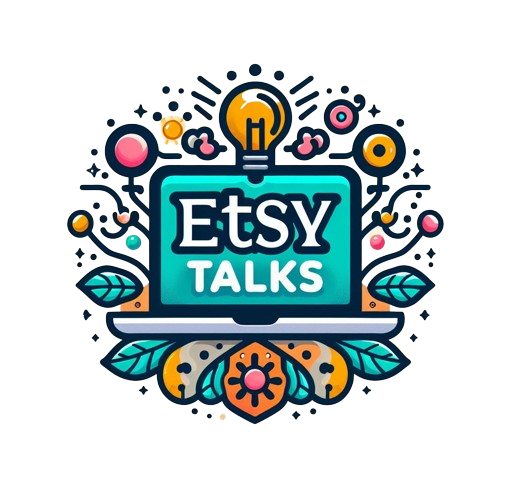
WhatsApp has evolved from a simple messaging app into a powerful tool for businesses worldwide. With over 2 billion users, its potential for marketing is immense. Whether you’re a small business owner, a marketer, or a brand looking to enhance customer engagement, WhatsApp marketing offers a direct, personal way to reach your audience. Here’s a step-by-step guide to help you leverage WhatsApp for your marketing needs.
1. Understanding WhatsApp Marketing
WhatsApp marketing involves using the platform to communicate with customers, promote products or services, and build relationships. Unlike traditional marketing channels, WhatsApp offers a more personalized and conversational approach, allowing businesses to interact with customers in real-time.
- Why WhatsApp?: High engagement rates, global reach, and the ability to share multimedia content make WhatsApp a versatile marketing tool.
- WhatsApp Business App: Designed specifically for small to medium-sized businesses, the WhatsApp Business app offers features like business profiles, quick replies, and automated messages.
2. Setting Up WhatsApp for Business
To get started with WhatsApp marketing, you’ll need to set up a dedicated business account.
- Download WhatsApp Business: Available on both iOS and Android, this version of WhatsApp includes tools tailored for businesses.
- Create a Business Profile: Fill out your business name, logo, description, and contact details. Make sure your profile reflects your brand identity.
- Set Up Messaging Tools: Utilize features like automated greetings, away messages, and quick replies to enhance customer communication.
3. Building a Contact List
Your success in WhatsApp marketing depends largely on building a relevant contact list. Unlike other platforms, WhatsApp marketing is permission-based, meaning you need explicit consent from users to message them.
- Opt-In Methods: Encourage customers to opt-in by offering exclusive deals, early access, or valuable content. This can be done through your website, social media, or in-store promotions.
- Segmentation: Organize your contacts into different groups based on factors like location, purchase history, or engagement level. This allows for more targeted and relevant communication.
4. Crafting Effective Messages
The key to successful WhatsApp marketing lies in crafting messages that are engaging, relevant, and personalized.
- Message Types: Use a mix of text, images, videos, and voice notes to keep your content varied and engaging. For instance, a clothing brand might share images of new arrivals, while a restaurant might send a video of a chef preparing a popular dish.
- Tone and Style: WhatsApp is a personal platform, so your messages should feel conversational rather than formal. Use emojis, humor, and casual language where appropriate.
- Call-to-Action (CTA): Every message should include a clear CTA, whether it’s visiting your website, making a purchase, or simply replying to the message.
5. Leveraging WhatsApp Status
WhatsApp Status allows you to share updates with your contacts for 24 hours, similar to Instagram Stories. This feature can be used for flash sales, product launches, or behind-the-scenes content.
- Create Engaging Status Updates: Use a combination of images, videos, and text to create compelling stories. For example, you could share a countdown to a sale or showcase customer testimonials.
- Frequency: Don’t overwhelm your audience with too many updates. Find a balance that keeps your brand top-of-mind without being intrusive.
6. Customer Support via WhatsApp
One of the most effective uses of WhatsApp is providing customer support. The immediacy of the platform allows you to resolve issues quickly and efficiently, enhancing customer satisfaction.
- Real-Time Support: Use WhatsApp to answer customer inquiries, handle complaints, and provide product support. The instant nature of the platform allows for quick resolution of issues.
- Automated Responses: For common queries, set up automated responses that provide instant answers. This can save time and ensure customers get the information they need quickly.
- Feedback Collection: After resolving an issue, ask customers for feedback through a quick survey or a simple rating system. This not only helps improve your service but also shows customers that you value their opinion.
7. Running Campaigns and Promotions
WhatsApp is a powerful tool for running marketing campaigns and promotions. However, it’s important to do so in a way that respects the personal nature of the platform.
- Exclusive Offers: Send time-sensitive offers or discounts to your WhatsApp contacts. The exclusivity of these deals can encourage quick action.
- Event Promotions: If you’re hosting an event, use WhatsApp to send invites, reminders, and updates. The direct nature of WhatsApp makes it ideal for building excitement and ensuring high attendance.
- Referral Programs: Encourage your contacts to share your WhatsApp number with their friends in exchange for rewards. This can help you grow your contact list organically.
8. Measuring Success
To understand the effectiveness of your WhatsApp marketing efforts, it’s essential to track key metrics.
- Message Open Rates: Unlike email, WhatsApp messages have incredibly high open rates, often exceeding 90%. Monitor these rates to gauge how well your messages are performing.
- Response Rates: Track how many recipients respond to your messages. High response rates indicate that your content is engaging and relevant.
- Conversion Rates: Measure how many recipients take the desired action, whether it’s clicking a link, making a purchase, or attending an event. This will help you assess the ROI of your campaigns.
9. Compliance and Best Practices
WhatsApp marketing is subject to regulations and best practices that must be adhered to in order to maintain trust and avoid legal issues.
- GDPR Compliance: If you operate in or market to the EU, ensure that your practices comply with GDPR regulations. This includes obtaining explicit consent before messaging and providing options to opt out.
- Respect Privacy: Never share or sell your contact list, and always provide a way for users to unsubscribe from your messages.
- Frequency and Timing: Be mindful of how often and when you send messages. Avoid bombarding your contacts with frequent messages, and try to send them at times when they are most likely to be available.
10. Future Trends in WhatsApp Marketing
As WhatsApp continues to evolve, new features and trends are emerging that could shape the future of marketing on the platform.
- WhatsApp Pay: The introduction of WhatsApp Pay in some regions allows users to make payments directly within the app. This could open up new possibilities for in-app purchases and seamless transactions.
- Advanced Automation: With the growing use of AI, expect more sophisticated chatbots and automated workflows that can handle complex customer interactions.
- Integration with Other Platforms: As part of the Facebook ecosystem, WhatsApp is likely to see deeper integrations with other platforms like Instagram and Messenger, allowing for more cohesive cross-platform marketing strategies.
Conclusion
WhatsApp marketing offers a unique and powerful way to connect with your audience on a personal level. By setting up a business profile, building a relevant contact list, crafting engaging messages, and leveraging the platform’s features, you can create a marketing strategy that drives results. As with any marketing channel, the key to success lies in respecting the platform’s nature and focusing on delivering value to your audience. With the right approach, WhatsApp can become an essential part of your marketing toolkit.
